Charles E W Bean, Diaries, AWM38 3DRL 606/258/1 - 1914 - 1927 - Part 4
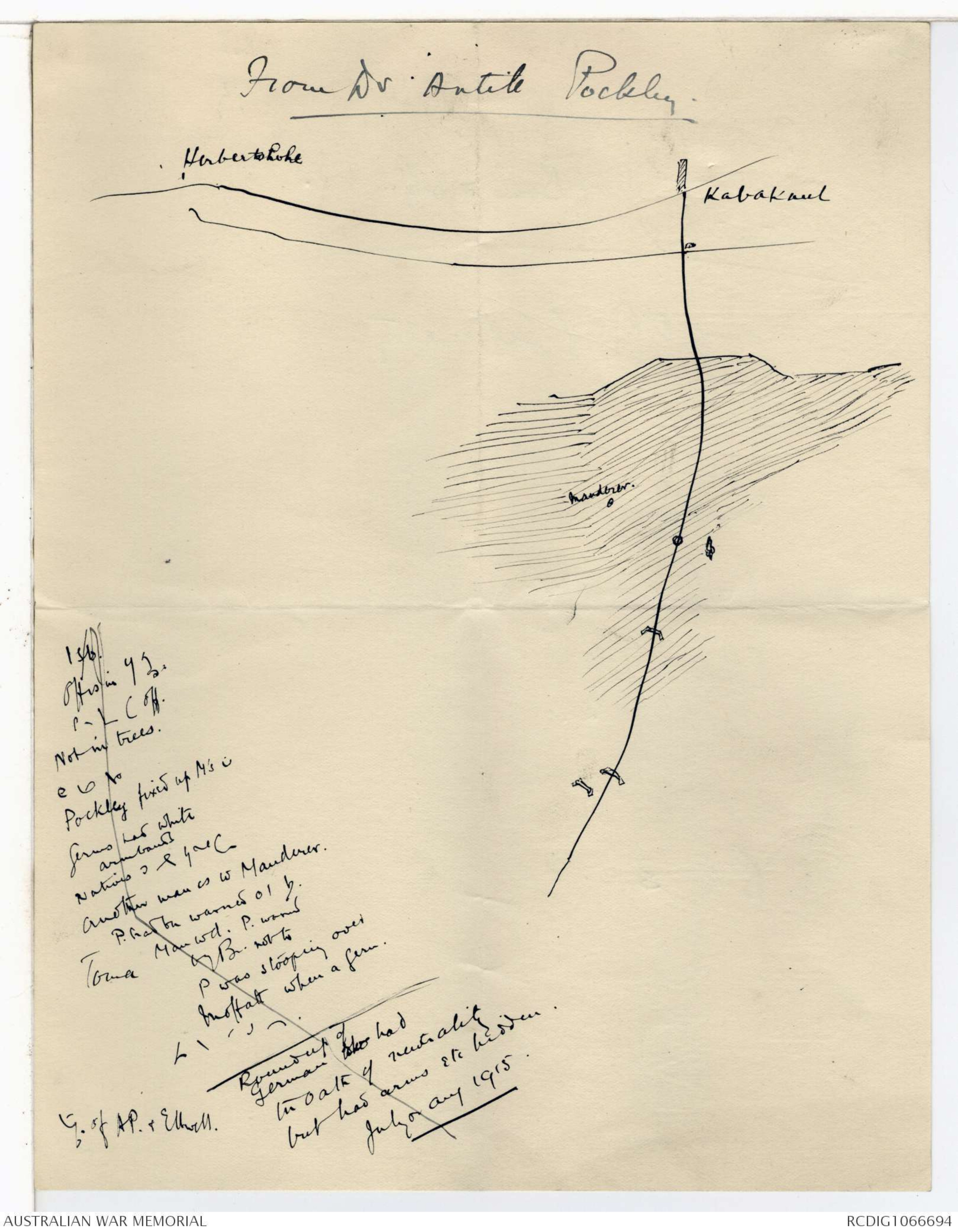
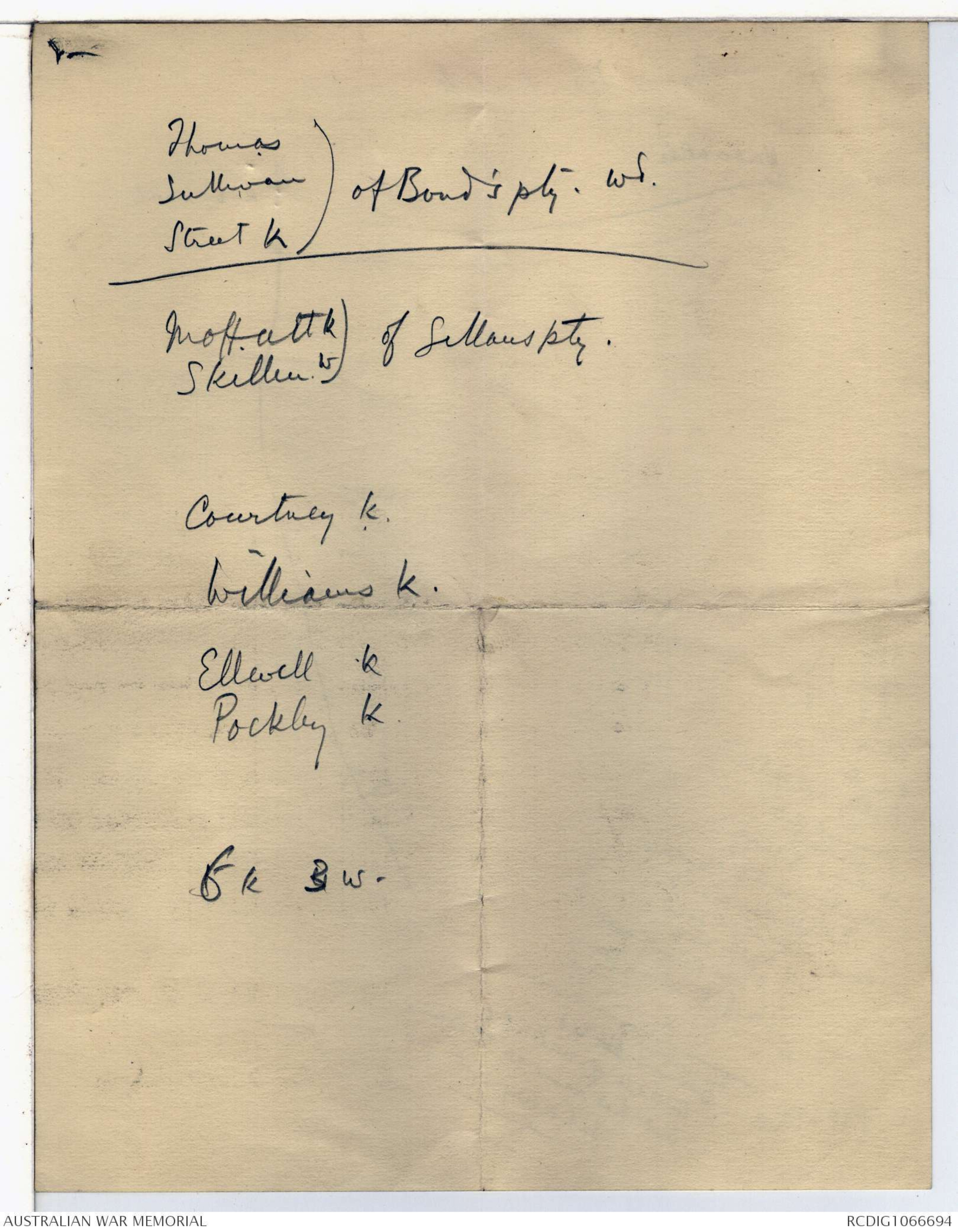
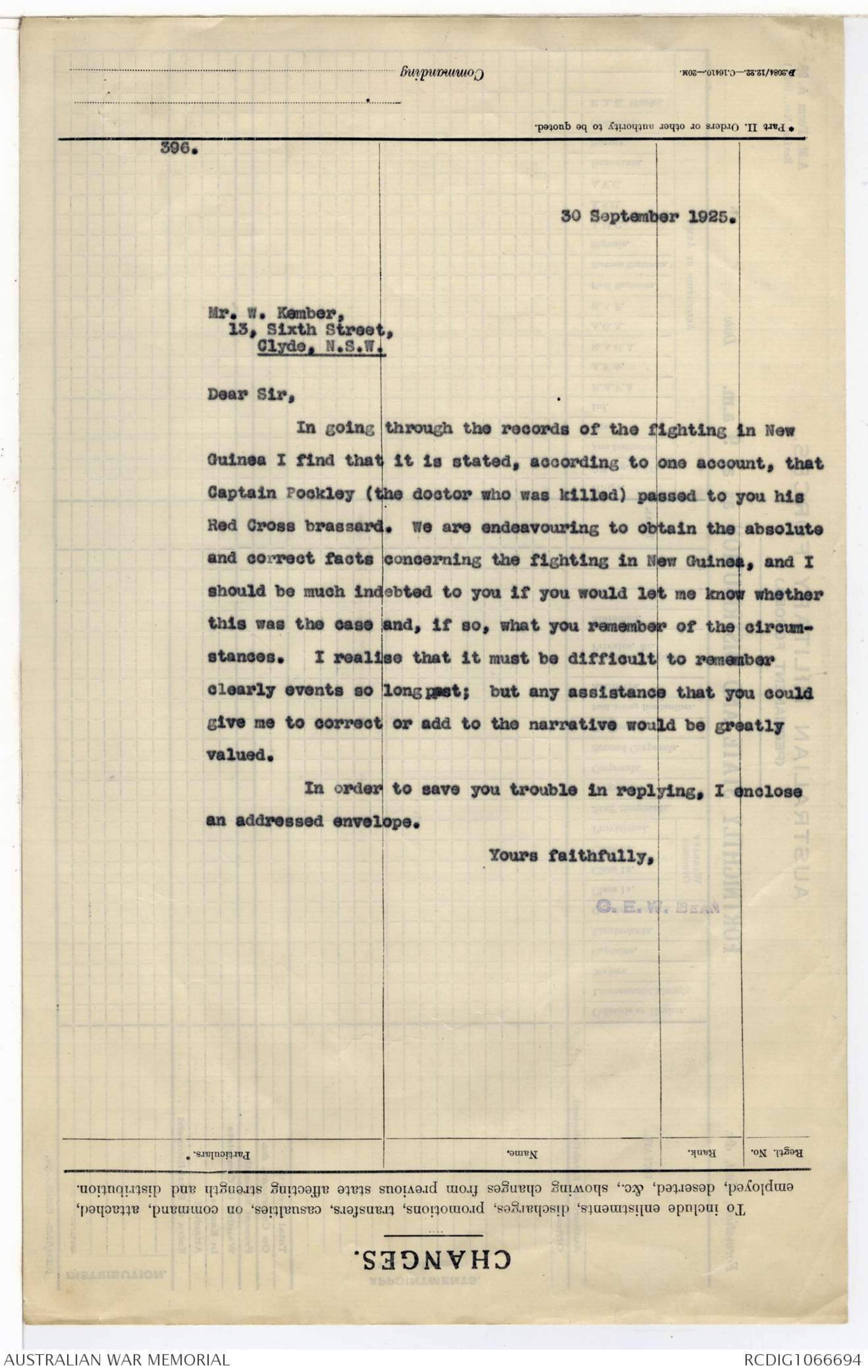
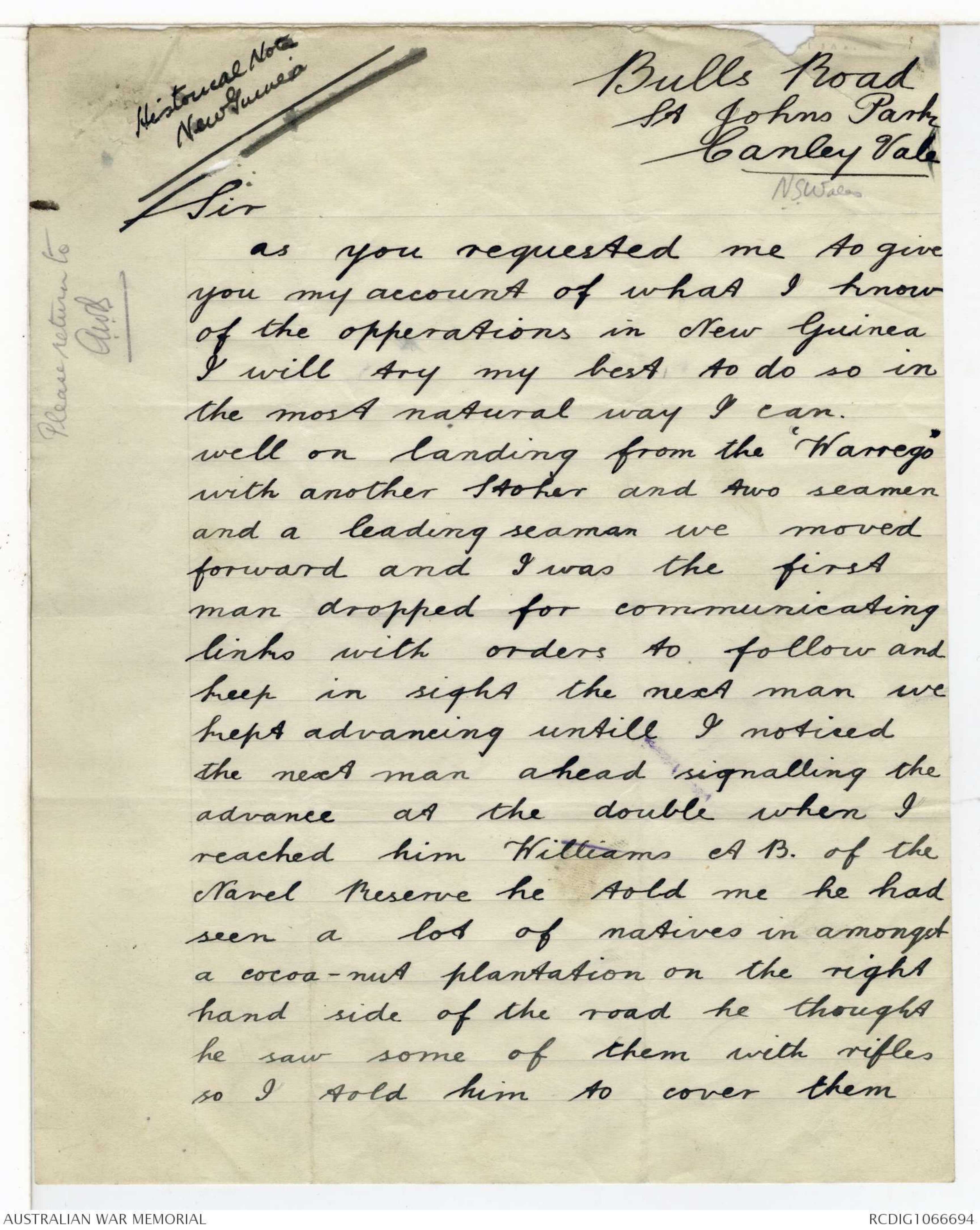
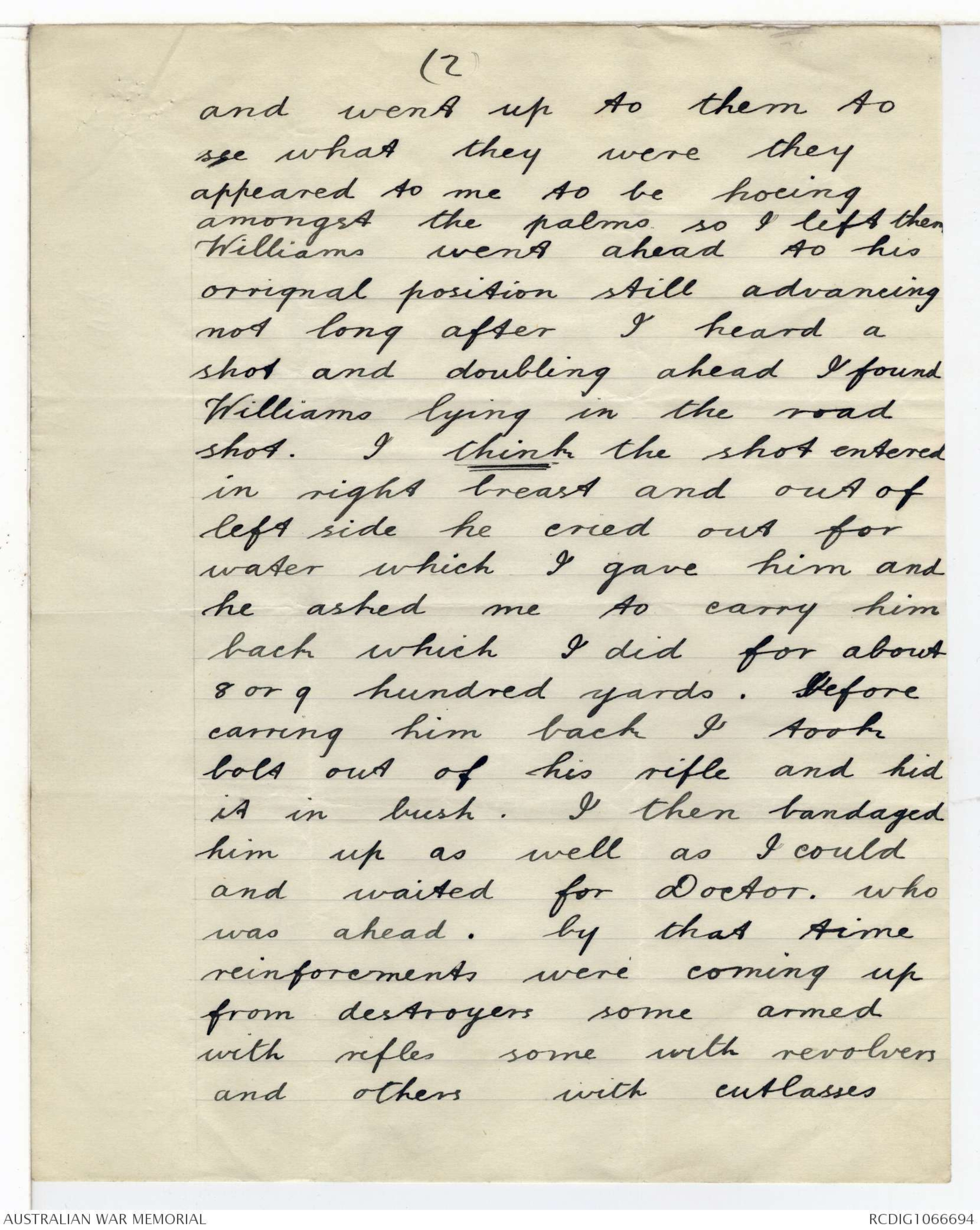
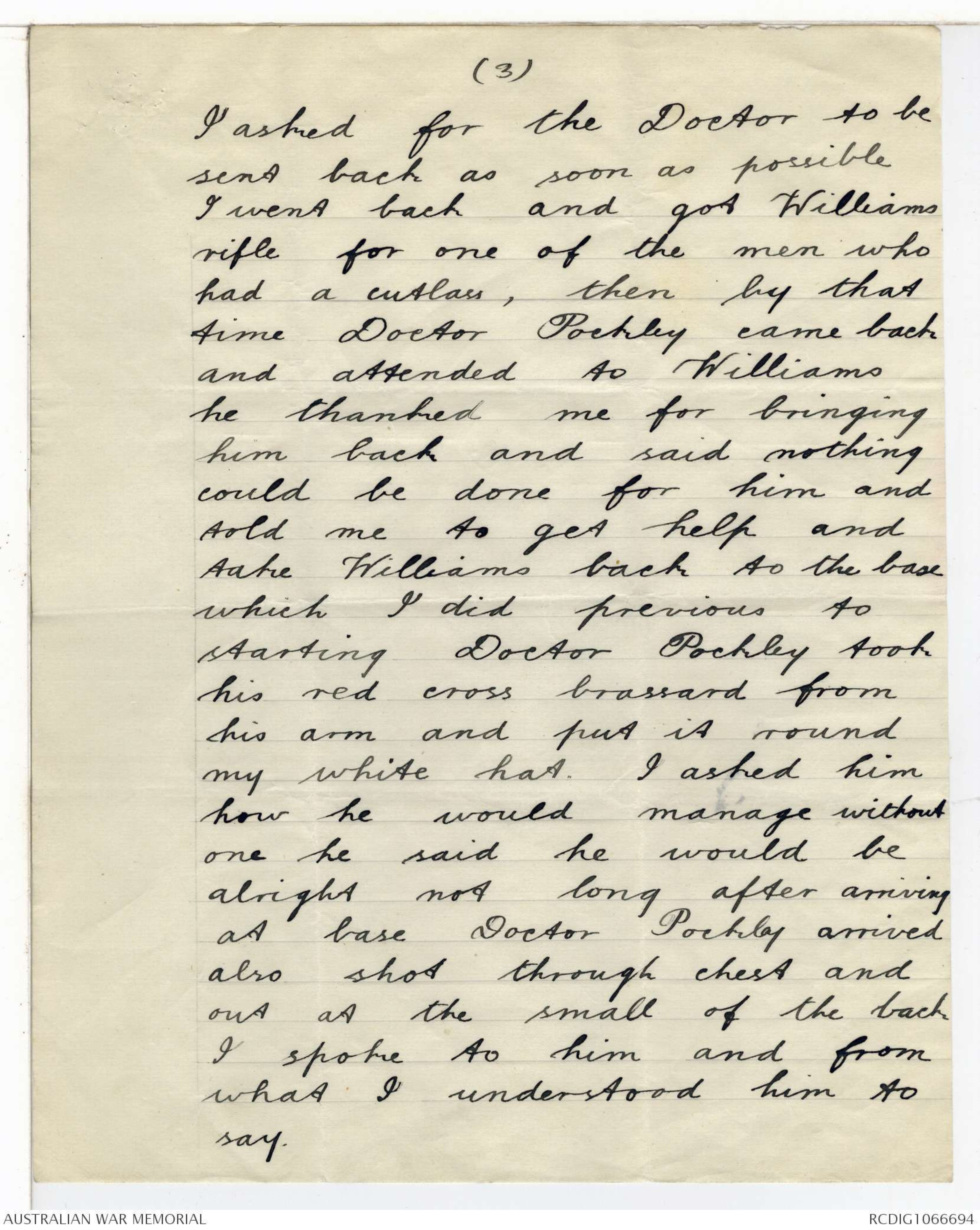
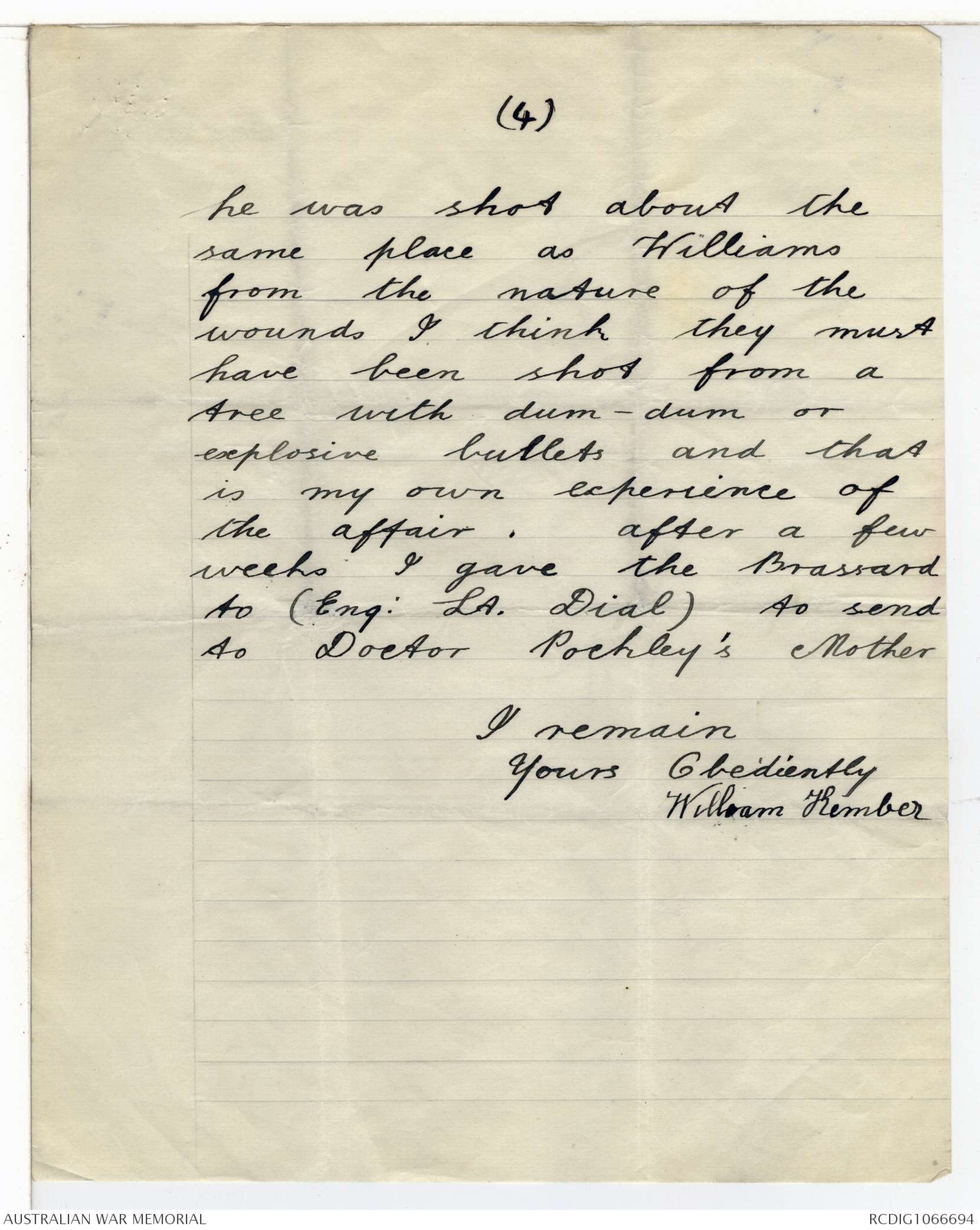
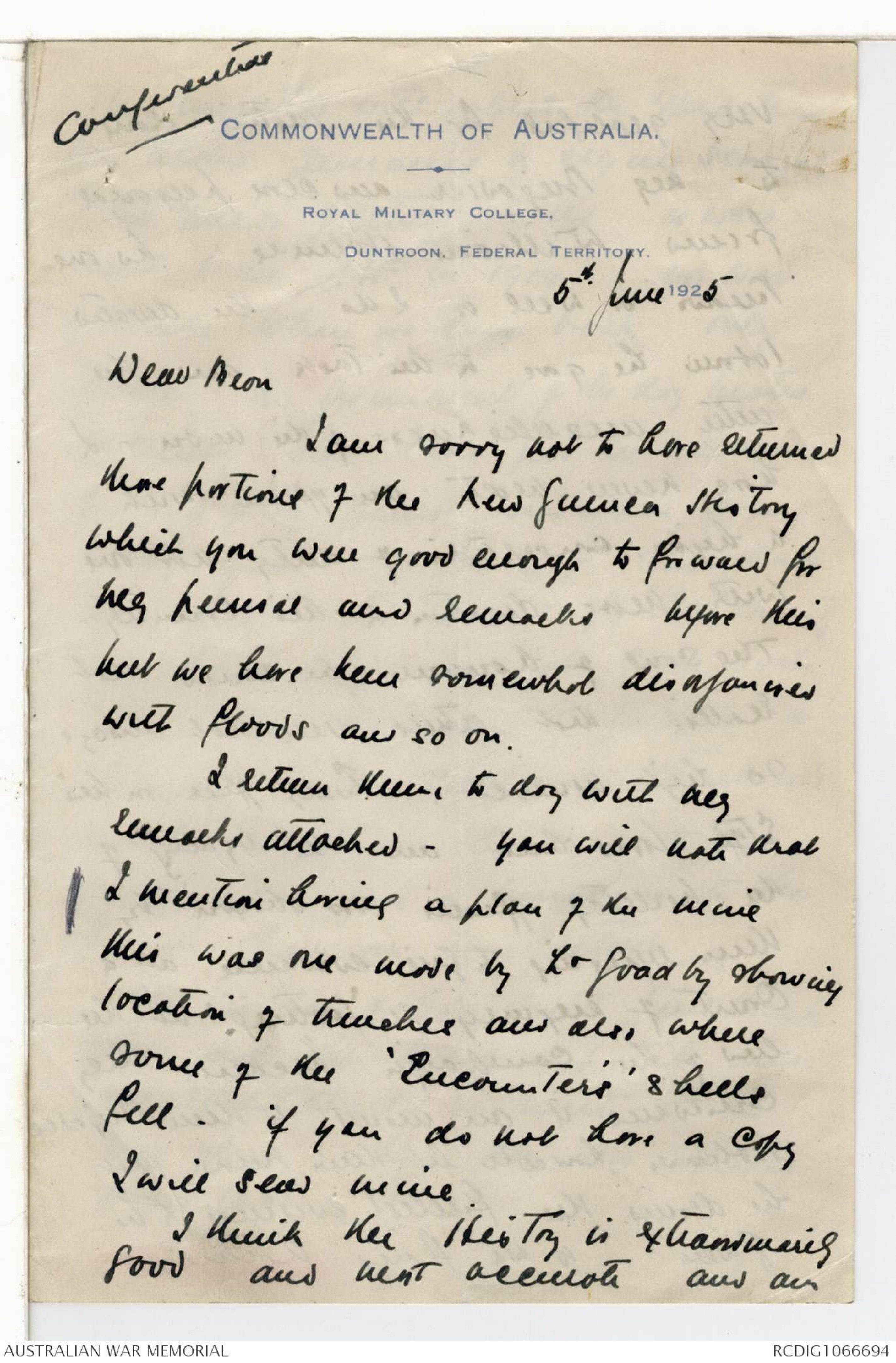
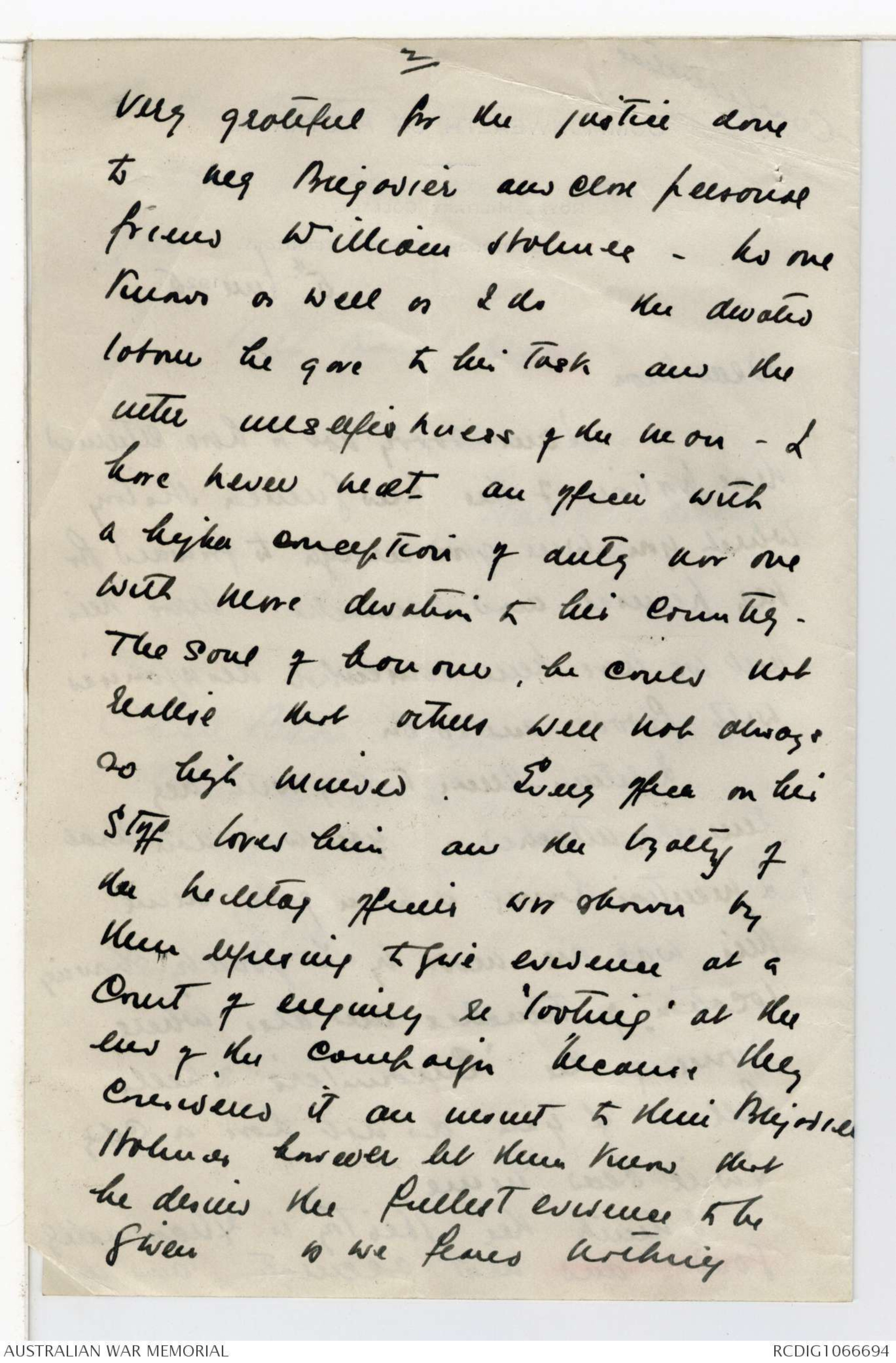
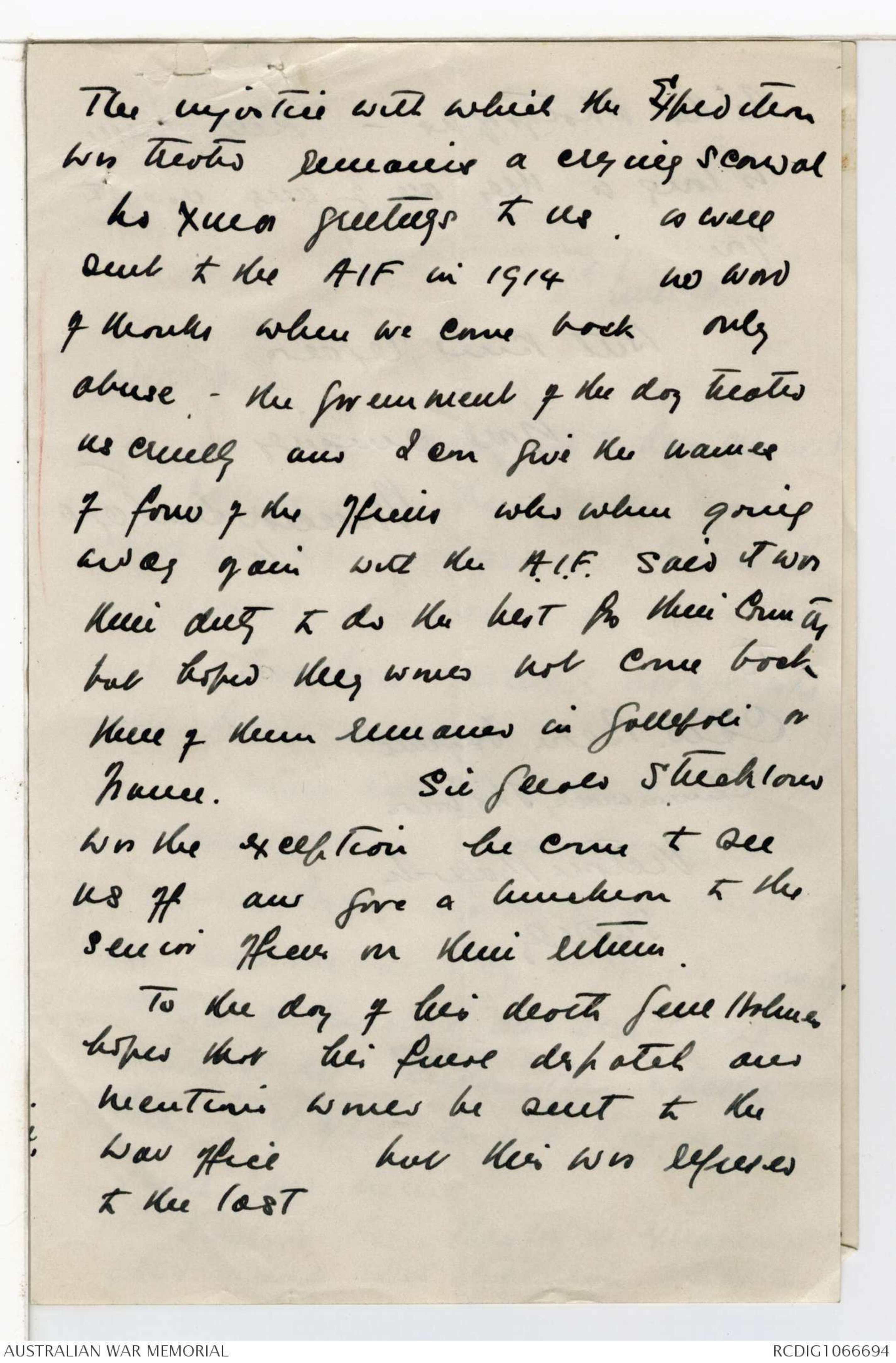
From Dr Antill Pockley.
Diagram - see original document
| Thomas | of Bond's pty. wd. |
| Sullivan | |
| Street k |
| Moffatt k | of Gillans pty. |
| Skillen. w |
Courtney k.
Williams k.
Ellwell k
Pockley k.
6k 3w.
396.
30 September 1925.
Mr. W. Kember,
13, Sixth Street,
Clyde. N.S.W.
Dear Sir,
In going through the records of the fighting in New
Guinea I find that it is stated, according to one account, that
Captain Pockley (the doctor who was killed) passed to you his
Red Cross brassard. We are endeavouring to obtain the absolute
and correct facts concerning the fighting in New Guinea, and I
should be much indebted to you if you would let me know whether
this was the case and, if so, what you remember of the
circumstances. I realise that it must be difficult to remember
clearly events of long past; but any assistance that you could
give me to correct or add to the narrative would be greatly
valued.
In order to save you trouble in replying, I enclose
an addressed envelope.
Yours faithfully,
C.E.W. BEAN
[*Historical Note
New Guinea*]
Bulls Road
St Johns Park
Canley Vale
N.S.Wales
[*Please return to
CE.W.B*]
Sir,
As you requested me to give
you my account of what I know
of the operations in New Guinea
I will try my best to do so in
the most natural way I can.
well on landing from the "Warrego"
with another Stoker sand two seamen
and a leading seaman we moved
forward and I was the first
man dropped for communicating
links with orders to follow and
keep in sight the next man we
kept advancing untill I noticed
the next man ahead signalling the
advance at the double when I
reached him Williams AB. of the
Navel Reserve he told me he had
seen a lot of natives in amongst
a cocoa-nut plantation on the right
hand side of the road he thought
he saw some of them with rifles
so I told him to cover them
(2
and went up to them to
see what they were they
appeared to me to be hoeing
amongst the palms so I left them
Williams went ahead to his
original position still advancing
not long after I heard a
shot and doubling ahead I found
Williams lying in the road
shot. I think the shot entered
in right breast and out of
left side he cried out for
water which I gave him and
he asked me to carry him
back which I did for about
8 or 9 hundred yards. Before
carring him back I took
bolt out of his rifle and hid
it in bush. I then bandaged
him up as well as I could
and waited for Doctor. who
was ahead. by that time
reinforcements were coming up
from destroyers some armed
with rifles some with revolvers
and others with cutlasses
(3)
I asked for the Doctor to be
sent back as soon as possible
I went back and got Williams
rifle for one of the men who
had a cutlass, then by that
time Doctor Pockley came back
and attended to Williams
he thanked me for bringing
him back and said nothing
could be done for him and
told me to get help and
take Williams back to the base
which I did previous to
starting Doctor Pockley took
his red cross brassard from
his arm and put it round
my white hat. I asked him
how he would manage without
one he said he would be
alright not long after arriving
at base Doctor Pockley arrived
also shot through chest and
out at the small of the back
I spoke to him and from
what I understood him to
say.
(4)
he was shot about the
same place as Williams
from the nature of the
wounds I think they must
have been shot from a
tree with dum-dum or
explosive bullets and that
is my own experience of
the affair. after a few
weeks I gave the Brassard
to (Eng: LA. Dial) to send
to Doctor Pockley's Mother
I remain
Yours Obediently
William Kember
Confidential
COMMONWEALTH OF AUSTRALIA.
ROYAL MILITARY COLLEGE,
DUNTROON. FEDERAL TERRITORY.
5th June 1925
Dear Bean
I am sorry not to have returned
these portions of the New Guinea History
which you were good enough to forward for
my perusal and remarks before this
but we have been somewhat disorganised
with floods and so on.
I return them to day with my
remarks attached - you will note that
I mention having a plan of the mine
this was one made by Lt Good by showing
location of trenches and also where
some of the 'Encounter's' shells
fell. if you do not have a copy
I will send mine.
I think the History is extraordinarily
good and most accurate and am
2
very grateful for the justice done
to my Brigadier and close personal
friend William Holmes - no one
knows as well as I do the devoted
labour he gave to his task and the
utter unselfishness of the man - I
have never met an officer with
a higher conception of duty nor one
with more devotion to his Country.
The soul of honour, he could not
realise that others were not always
so high received. Every officer on his
Staff loved him and the loyalty of
the military officers was shown by
them expressing to give evidence at a
Court of enquiry re "looting" at the
end of the campaign because they
considered it an insult to their Brigadier
Holmes however let them know that
he desired the fullest evidence to be
given as we feared nothing
The injustice with which the Expedition
was treated remains a crying scandal
his Xmas greetings to us. as well
sent to the AIF in 1914 no word
of thanks when we came back only
abuse. - the Government of the day treated
us cruelly and I can give the names
of four of the officers who when going
away again with the A.I.F. said it was
their duty to do the best for their Country
but hoped they would not come back
three of them remained in Gallipoli or
France. Sir Gerald Strickland
was the exception he came to see
us off and gave a luncheon to the
Senior officers in their esteem.
To the day of his death Genl Holmes
hoped that his final despatch and
mentions would be sent to the
War Office but this was refused
to the last
 Lulu B
Lulu BThis transcription item is now locked to you for editing. To release the lock either Save your changes or Cancel.
This lock will be automatically released after 60 minutes of inactivity.